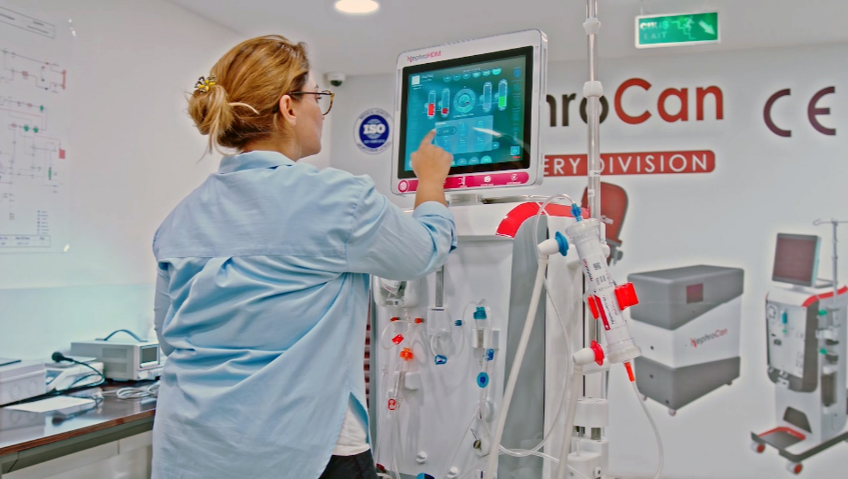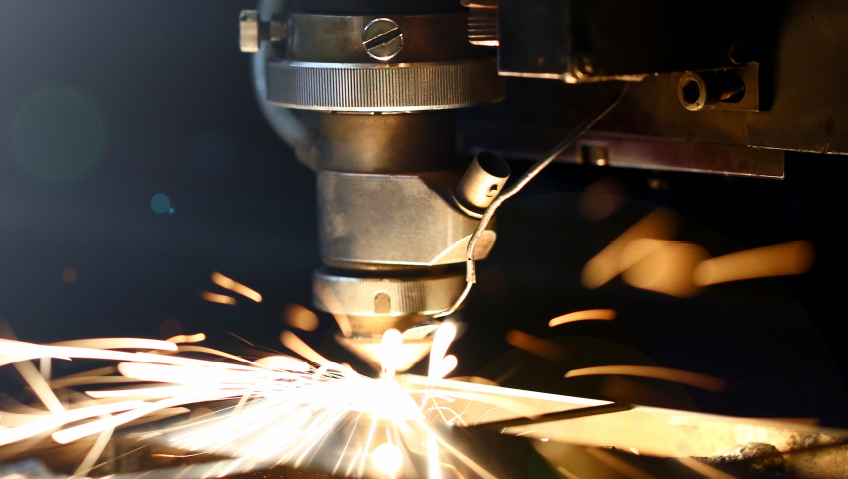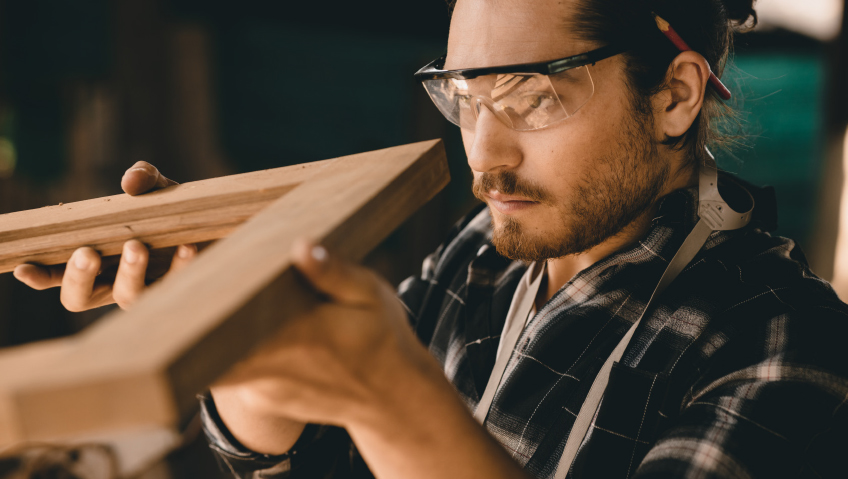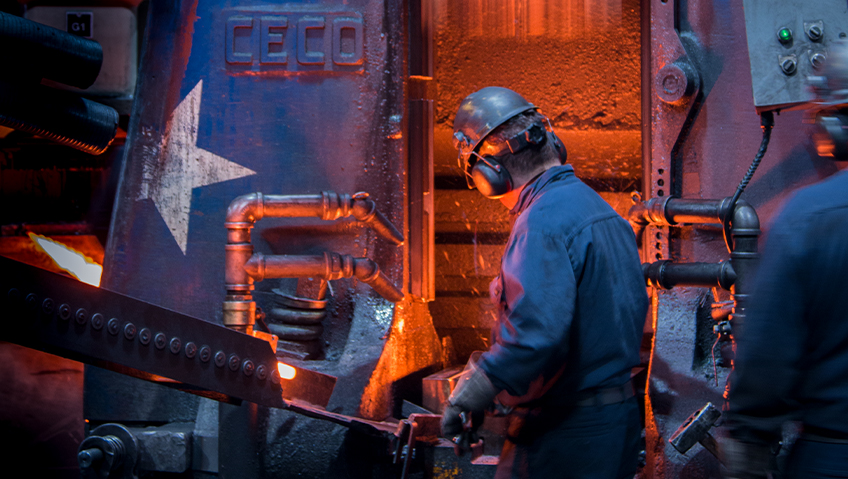Our bodies are truly amazing, with various organs performing specific housekeeping tasks to keep us healthy and alive. Like the kidneys—functioning properly, these paired organs remove waste products from the blood and regulate the amount of fluid in our bodies.
But say the kidney’s function is impaired, whether through diabetes, high blood pressure, disease, or physical injury. In that instance, hemodialysis, also known as kidney dialysis, is needed to sustain life and to filter out poisonous wastes created during metabolism like urea and creatinine.
First performed in the early 1940s with the invention of the artificial kidney, the hemodialysis procedure has improved considerably over the decades, with unwanted elements in the blood efficiently removed. However, hemodialysis requires patients to visit a treatment centre, usually a hospital, three or even four times a week, with each session taking about four hours. Add travelling time, and some hemodialysis patients consider treatment a part-time job.
“It’s a very vigorous treatment,” says Delaram Hajipour. “But imagine if we can provide that in-home; how good that would be for patients?”
Chief Executive Officer for Vancouver-based NephroCan since 2016, Hajipour is on a mission: for NephroCan to be a leader in innovative and improved therapies to help ease some of the burden for patients who have to visit centres approximately 150 times a year for their hemodialysis treatments.
Dialysis specialists
With the tagline “Rethinking Hemodialysis,” NephroCan provides patients, medical professionals, and healthcare authorities with innovative and cost-effective hemodialysis solutions of the highest quality. Specialists in end-stage renal disease (ESRD) / end-stage kidney disease, NephroCan is committed to improving quality of life for patients by offering trusted state-of-the-art hemodialysis consumables and machinery.
ESRD is the final stage of chronic kidney disease, when the kidneys can no longer sustain life for the patient. The three types of kidney replacement therapy are hemodialysis—NephroCan’s specialty—peritoneal dialysis, which uses the lining of the abdomen to filter blood inside the body, and kidney transplants.
Unlike many companies that solely provide disposable kits or solely the machinery, NephroCan supports the entire hemodialysis process with kits, hemodialyzers, needles, hemodialysis machines, reverse osmosis machines, and even patient chairs. As Hajipour says in the company’s latest “Rethinking Hemodialysis” catalogue, “We are the first and only Canadian company with an A to Z product offering. We have everything you need for one hemodialysis treatment, so we’re a fully integrated product and services company,” she says. “That was important for us from the beginning.”
NephroCan categorizes its product offerings into groups: disposables, like its well-known NephroFilter and sodium bicarbonate; and machinery, such as its reverse osmosis machines. The company maintains comprehensive manuals for nurses to reference and provides seminars to familiarize others with their disposable products. On the machinery side, nurses receive training, NephroCan’s in-house engineers install the equipment, and local engineers are trained to perform maintenance.
To ensure successful operation, NephroCan offers full after-sales care services like in-person or remote troubleshooting, spare parts, ongoing advice, and even expertise in establishing dialysis clinics. And for both disposables and machinery, the company provides extensive post-market surveillance through an in-house nurse involved in hemodialysis care who works directly with healthcare providers and patients.
“We have 25 years of accumulated experience among our experts, and that has allowed us to have everything from our manufacturing line to the end product—even some key raw materials—in our product list,” explains Hajipour. “That naturally gives us the flexibility and agility to meet market demands and needs as they arise.”
Producing everything in-house is a key point of difference for NephroCan, enabling the company to better serve its clients.
Growing to meet demand
From its headquarters in Vancouver, BC, the capital of Silicon Valley North, NephroCan is surrounded by partners and opportunities that enable the team to advance all levels of patient care.
Beginning in 2008 as a medical consulting business (under a different name), the new venture soon realized that there was an enormous interest in medical devices manufactured by Canadian companies. Conducting a feasibility study and gaining a better knowledge of the market landscape, they created NephroCan in 2016.
As well as Vancouver, the company has strategic locations in Italy for business development and representation for certification in the European Union, and manufacturing sites in Germany and Turkey, which has a high percentage of persons with chronic kidney disease (CKD).
All of NephroCan’s manufacturing lines are designed in-house by the company. “We’re lucky, being fully integrated, because we have so many experts around us,” comments Hajipour, “and Germany is known for its medical-grade hollow fibres.” These are synthetic “hairs” about the size of a human hair, hollow inside, with tiny holes along their length, allowing permeability between waste and extra granules in the blood, which are filtered out during hemodialysis.
“Germany had that innovation and advanced technology for many years,” Hajipour notes. “They were leading the industry for that. This is why we went to Germany and acquired a plant, but Turkey was our own strategic decision.”
Green dialysis
Recognizing that some products created by the medical supply industry add to the world’s waste, NephroCan is active in sustainable practices and environmentally friendly initiatives. Times are changing, and in the industry, there is a movement toward “green dialysis,” which NephroCan believes is the future.
“Some projects are in progress or being implemented as we speak,” says Hajipour, “and one is establishing how to recycle our disposable waste material into other manufacturing resources.” This includes the body of the company’s filters. Made from durable polycarbonate (PC), a thermoplastic, it can be recycled into applications like car taillights.
Another way NephroCan helps the environment is by learning to regenerate water intake. Just one hemodialysis session requires about 120 litres of purified water—approximately 200 litres of tap water. Over a year, this amounts to about 30,000 litres of tap water used for a single patient. The company is investigating how to recover some of that water as a duty to the world we live in. NephroCan also plans to install solar panels on the roof of its factory in Turkey for sustainable energy generation.
Home hemodialysis
Not satisfied with current technologies, the team of industrial engineers, hemodialysis nurses, and nephrologists at NephroCan is looking to the future. The company’s current hemodialysis machine, NephroHDM, was developed for adult kidney replacement therapy. Equipped with a single, double, or triple blood pump, it can “accommodate even the most tailored hemodiafiltration procedures.” It also gives the team the foundation to work on a new machine suitable for home treatment, which they plan to introduce to the market in the next two to three years. Instead of spending three to four hours three times a week at a hemodialysis centre, patients will perform the procedure in the relaxed comfort of their own homes, saving time while improving their quality of life.
“We see the future of accessible renal care moving toward home dialysis,” says Hajipour. “This would make a huge difference, especially in a country the size of Canada, where people often have to travel for hours from rural areas to a treatment centre or hospital.”
Worldwide, more and more people are requiring hemodialysis. The compound annual growth rate of patients in the next 10 years is estimated to be 6.8 percent. CKD is already one of the leading causes of death in the 21st century and is expected to become the leading cause of death by 2040, due to the increasing incidence of obesity, diabetes, hypertension, and possibly long-term effects from COVID-19.
No wonder NephroCan is focusing right now on meeting this coming crisis by expanding its product range and—especially—its home care solutions.
Going global
Presently, NephroCan is in Phase 2 of its three-Phase global strategy. Expanding into Germany, Phase 3 will see the company growing its manufacturing efforts in Canada, which will require the support of government groups.
As company CEO, Delaram Hajipour is actively streamlining NephroCan’s day-to-day operations, overseeing the leadership team, and driving strategy. A graduate of the prestigious UBC Sauder School of Business, she has been involved in several successful small-scale business ventures, including the development of intellectual property that was sold to a large international company.
Her involvement with the medical industry was inspired by her parents, both physicians. “I always knew I wanted to pursue a career that centred on my passion for medicine and healthcare, so this was my way of contributing to the industry,” she says.
Her goal remains to find new solutions that better the lives of patients. “Our vision is to create a new modality of treatment that meaningfully lessens the cost for governments and increases the quality of life for patients in the comfort of their homes, instead of going to a dialysis centre 150 times a year,” she shares.
“Many of our partners tell us how valuable and integrated our vision is, and that working with a trusted manufacturer like us that focuses on quality, value, and long-term relationships is what they are looking for. We’re open to partnerships that align with our vision of re-thinking hemodialysis and changing the paradigm of treatment.”






